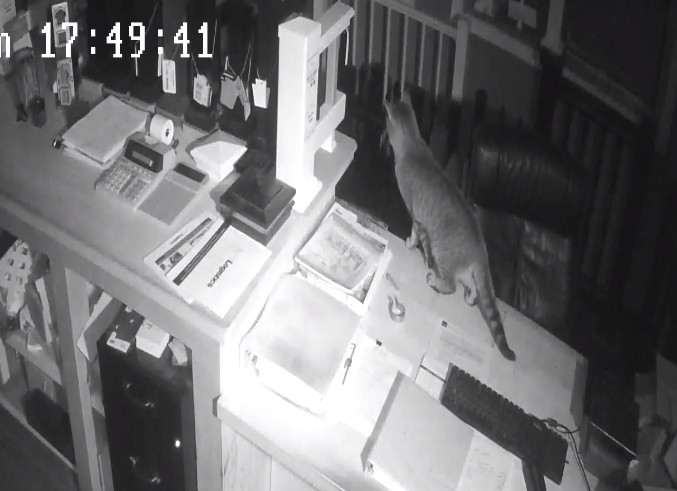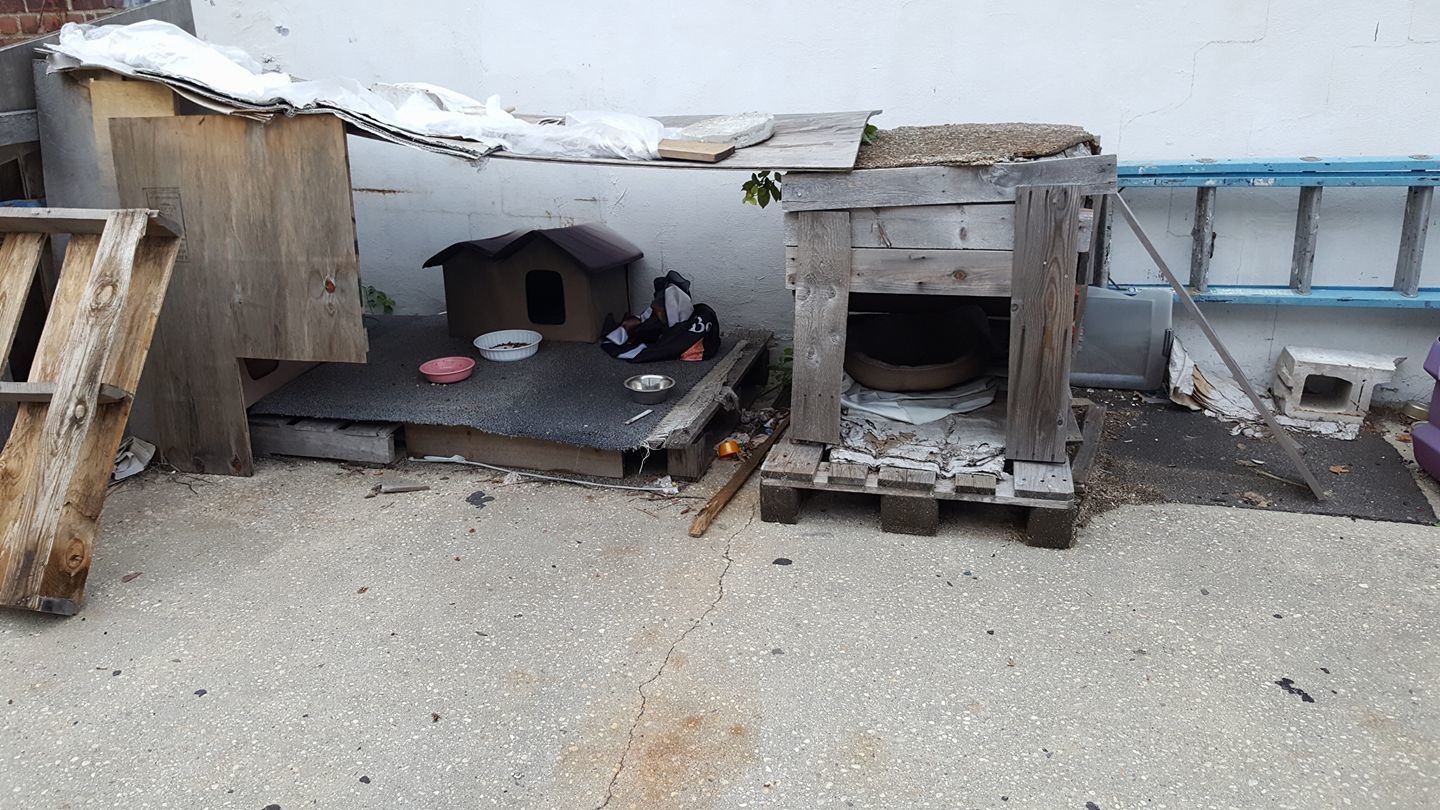Feral felines bother businesses
The nine lives of Oceanside cats
Last June, protests erupted over the alleged mistreatment of a feral cat colony at the Ocean side Sanitation Transfer Station on Long Beach Road.
Now, six months later, amid community efforts to care for the homeless felines, local business owners say that the strays are causing problems.
Mike Levy, who owns National Metal Industries, which operates in an industrial area on Neil Court, told the Herald that for years the stray cats have set off his security system’s motion detector at odd hours of the night. This happens, he said, “about two or three times a month,” forcing him to go to the store and check the footage.
Levy added that he has reduced the sensitivity of his motion-detection system, and even aimed the cameras to avoid sections where he thought the cats would wander, but “the cats are still setting it off,” he said.
Lenny Samara, owner of State of the Art Auto Body, roughly a block away, said that the cat problem went beyond the inconvenience of late-night alarms. “They’ll find any car that has a broken window or a hole they can get in,” Samara said, and then use his clients’ cars as litter boxes. “A lot of the time, there’s no saving [the cars] after that happens.” He estimates that over the years, he’s lost between 30 and 50 vehicles to feline waste.
Samara said that part of the problem is the feral cat enclosure at the back of the Barry and Florence Friedberg Jewish Community Center parking lot, adjacent to Samara’s property. The 8-by-8-foot open shelter has a slanted roof, bowls of food and water and a handful of cat houses.
When the Herald visited the site, four adult cats were lazing in the shelter. A fifth slipped out under the gate, jumped onto the fence between Samara’s lot and the JCC’s and leapt into the auto body yard.
“For over two decades, a local benefactor has provided shelter on the Friedberg JCC’s property for some of the feral cats in Oceanside,” JCC Associate Executive Director Roni Kleinman said in a statement. “In addition, she pays for someone to feed them and address their medical needs, including spay/neutering. Our community is fortunate to have such a generous person that cares for all living beings.”
Kleinman added that on multiple occasions, and as recently as mid-December, the enclosure had been examined by county health inspectors and deemed compliant.
The JCC’s benefactor isn’t the only one caring for the feral felines. Tommy Apicella, a 12-year retiree who lives in Oceanside, has been working with residents to establish feeding locations for the cats. “When I first moved here years ago,” Apicella said, “they were starving.” Now he has three bowls of food, placed strategically around the neighborhood, which he fills and cleans daily.
“A lot of people complain,” he said, adding, “To hell with them.” The property owners who host his feeding bowls gave him their blessing for the project, and he said he has checked with the Nassau County Department of Health to ensure that his efforts are legal. “As long as the food gets cleaned up,” he said, “it’s OK to feed them.”
Apicella estimated that his food bowls help feed 44 cats, which he said he identifies by appearance. “It used to be 46,” he said, but a few became sick and, after he consulted with a veterinarian, they were euthanized.
Levy said that he’s an animal lover. “I actually helped send over 7,000 pounds of cat and dog food to hurricane-damaged areas, so it’s not like I don’t care,” he said. “I just don’t need them ruining my business.”
Of the JCC enclosure, Levy said, “They’re allowing something that’s a problem to remain a problem.” Of Apicella’s effort’s, he added, “He shouldn’t be coming on to my block feeding cats. Let him do it at his own house.”









